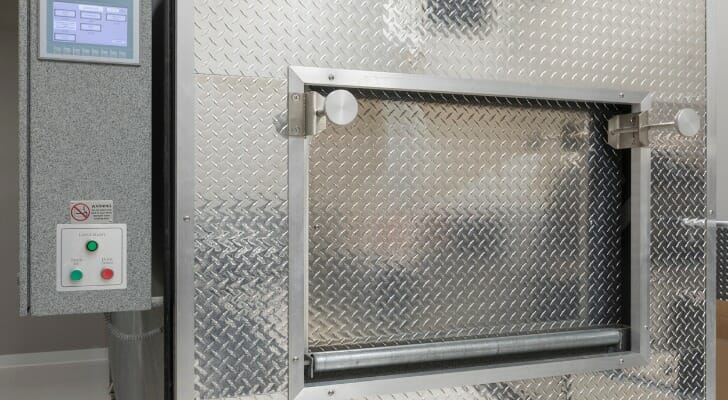When planning a funeral for a loved one, or for yourself, cremation may be presented as an alternative to burial. In terms of the expense involved, the average cremation cost can range from $1,500 to as much as $6,000. The costs can vary based on who performs cremation services and whether they’re accompanied by a traditional funeral service. While choosing cremation could potentially be less expensive than burial, it’s important to understand how the costs break down.
A financial advisor can help you create a financial plan to pay for funeral expenses.
What Are the Costs of Cremation?
Cremation services may seem like a simpler option than planning a funeral with a burial. But there are still a number of expenses you might pay, including:
- Final arrangement costs charged by the funeral home
- Cremation casket
- Embalming and preparation of the body if you plan to hold a viewing
- Casket rental for the viewing
- Flower arrangements
- Urn
- Interment costs associated with burying the urn, including purchasing a marker
The actual costs you’ll pay for cremation services depend on which arrangements you choose to make. There are also additional costs you may pay that are optional, such as purchasing cremation jewelry that incorporates part of your loved one’s ashes.
Average Cremation Cost
The average cost of having someone cremated can hinge largely on the type of cremation involved. There are four types of cremation services you may choose from:
- Cremation with a traditional funeral service
- Cremation with a simple memorial service
- Direct cremation with no service
- Cremation with body donation
Of the four, a cremation with a traditional funeral service is typically the most expensive. With this type of cremation, you may pay as much as $4,000 to $6,000, depending on whether you hire a funeral home or crematory to handle the arrangements. The more options you include, such as a funeral service or viewing, the more you can expect to pay.
Choosing a cremation with a simple memorial service instead can reduce some of the cost. With this option, friends and family would be able to gather to celebrate your loved one’s life and legacy. But their body wouldn’t be present, which would eliminate the need to pay for embalming and preparatory services or a casket rental. So you may pay $2,000 to $3,000 for this type of service.
Direction cremation is the least expensive option if you want to maintain the person’s ashes. With this type of cremation service, there is no funeral or memorial service of any kind. The body is not embalmed or displayed for viewing. Instead, the person is cremated and their ashes returned to you in a basic container. A direct cremation can cost around $1,100 on average, but you may pay more if you decide to purchase a more expensive urn.
The fourth option, cremation with body donation, is the least expensive choice. With this type of cremation service you agree to donate your loved one’s body to science. In exchange, the body is cremated at no cost to you. The trade-off, however, is that you don’t get to keep the ashes.
Cremation Costs vs. Burial Costs

When estimating cremation costs it’s helpful to consider how much you might pay for a standard funeral with burial instead. As of 2021, the average cost of a funeral is just over $7,800. But funeral costs can easily run as high as $10,000 or more, depending on the options you choose. Where you live can also make a difference in how much you pay for cremation services versus a traditional funeral and burial. Since cremation costs aren’t uniform, you may see a difference in cost between funeral homes or crematories in larger cities versus smaller towns.
Typical funeral costs include:
- Funeral home service fees
- Transportation of the body to the funeral home
- Embalming and preparing for viewing
- Staffing fees to manage the viewing and funeral ceremony
- Printing fees for memorial booklets
- Casket
- Flower arrangements
- Officiant fees
- Hearse and service vehicle fees
- Transportation of the body to the cemetery
- Burial fees
- Headstone or grave marker
Between the two, the typical cremation cost is likely to be less than a typical funeral cost. But again, what you actually pay will depend on the scope of services you choose.
How to Plan for Cremation Costs
Cremation costs could create a financial burden for those responsible for planning the service. But there are things you can do to plan ahead for cremation services and their associated expenses.
For example, if you’re sure that you want to be cremated when you pass away you could pay for a cremation in advance. This usually involves creating a prepaid funeral plan, choosing where you want cremation services to be handled and making arrangements to pay the funeral home or crematory upfront.
There is a potential risk involved if you prepay and the funeral home or crematory goes out of business. Your loved ones may not be able to get the money back that you paid in that case.
Another option is to set aside money that’s to be used for cremation services when the time comes. You could do this in several ways, including:
- Purchasing a final expense insurance policy
- Purchasing a traditional term life or permanent life insurance policy
- Setting up a trust account
- Setting up a joint bank account to hold cremation services funds
- Establishing a Payable on Death (POD) account
Final expense insurance is just what it sounds like: insurance that’s designed to be used to pay final expenses. These are typically smaller life insurance policies and you may be able to designate either a loved one or the funeral home as the beneficiary.
Traditional life insurance policies can be purchased in larger amounts. For example, you could purchase a $500,000 policy with your spouse listed as the beneficiary. When you pass away they could use some of the money to pay for cremation and use the rest to pay off debts or cover basic living expenses.
An annuity contract may include a death benefit. This ensures that a beneficiary receives a financial payout when you die. In that sense, it’s similar to a life insurance policy, although there are some key differences. Death benefits pay out differently in an annuity and face different tax liabilities.
Setting up a trust involves transferring assets to the control of a trustee. The trustee manages those assets on behalf of the trust beneficiaries, according to your wishes. You could set aside money for cremation services using a trust, while also transferring assets to minimize estate taxes.
Joint bank accounts and POD accounts can make money accessible to a joint account holder or beneficiary to pay for cremation costs. For example, a joint bank account could be opened with a spouse and they could add or withdraw money at any time. A POD account can only be accessed when you pass away but it’s something you might consider if you’re unmarried or a widow(er).
Bottom Line

The typical cremation cost can range from just over $1,000 at the low end to more than $6,000 at the high end. Whether it makes sense to choose cremation over burial can depend on what you or your loved ones can afford and personal preference. If you want to plan ahead, comparing the cost of cremation services with different funeral homes can help you shape your budget.
Tips on Estate Planning
- Talk to a financial advisor about planning and paying for cremation services, whether it’s life insurance, a trust or a POD account. SmartAsset’s free tool matches you with up to three vetted financial advisors who serve your area, and you can interview your advisor matches at no cost to decide which one is right for you. If you’re ready to find an advisor who can help you achieve your financial goals, get started now.
- Life insurance policies can be useful for paying cremation costs but some can also have an investment component. Universal life insurance, for instance, can allow you to build cash value in the policy that you could tap into during your lifetime. But compared to term life insurance, universal life and other types of permanent insurance can carry higher premiums.
Photo credit: ©iStock.com/serezniy, ©iStock.com/BanksPhotos, ©iStock.com/Des Green
